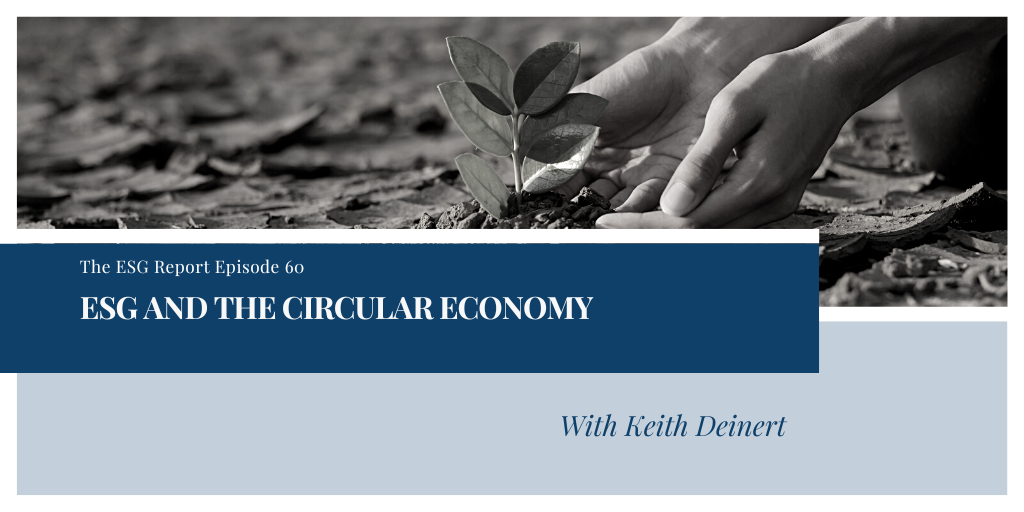
Tom Fox welcomes Keith Deinert to this episode of the ESG Report. Keith is the Global Program Manager at Jabil, a company that provides product design, manufacturing, and logistics to customers, as well as reverse supply chain strategies. In this brief conversation, they talk about scope three emissions, define the circular economy, and discuss how these topics all relate to ESG.
Scope Three Emissions
Tom asks Keith to start off by defining scope three emissions. “It’s probably easier to say what they’re not than what they are,” Keith quips. He begins by defining scope one and two emissions: scope one being the emissions that we emit ourselves, such as greenhouse gasses, and scope two being the actual energy we consume. Scope three is everything else. “[They’re] tied to the emissions from the commodities and the materials that we bring in to make the products,” Keith tells Tom. Scope three is the use of the product and the transportation involved, and its final disposition.
The Circular Economy
The Circular Economy sits on top and is the governing principle that drives a lot of sustainability initiatives. “It’s designing eco-friendly products in the beginning, it’s maximizing their useful life at their highest values…and then to regenerate natural systems,” Keith explains. In a circular economy, you’re building a product so that it can be reused. By doing so, you don’t have to extract as much material from the earth to create new products, and you’re actually avoiding driving up emissions in the ecosystem. Keith adds that companies are now adopting this mindset because their customers are more eco-conscious. “It’s not just something that’s a feel-good service anymore. Companies are looking at this proactively,” he stresses.
Business Driven Approach
Tom asks Keith if he’s seen a business-driven approach to both ESG and the circular economy and to elaborate. “It starts with the customer,” Keith begins. Consumers are more aware of which companies are trying to do the right thing when it comes to being environmentally conscious. Companies that want to create products or devices then come to Jabil as their manufacturers for help in making greener products. “What companies that we engage with are really good at is understanding the marketplace and their consumers,” Keith explains. “And they’re relying on us to be the experts on how to deliver these goals and these objectives into a manufactured product that meets that consumer’s [need],” he adds. When the customer demands more eco-friendly products, it drives the businesses to comply in order to be vendors of their desired consumer targets. This, in turn, drives business profit, and companies are taking notice. Keith cautions that while this approach is currently optional, it will become mandatory just to be in the business game.
Resources
Keith Deinert | LinkedIn





